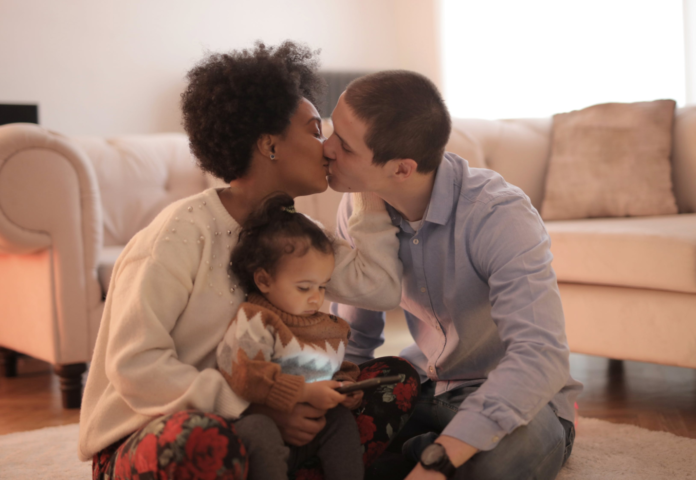Physical traits, such as eye/hair color, height, and blood type, are not the only ones our parents pass on. They also influence our beliefs and personalities, including the way we treat others and how we see the world. The example our parents set for us plays a big role in how we approach life and navigate relationships in adulthood.
The relationship between our parents is probably the first relationship we’ve seen and witnessed. As kids, we accept and believe that the way parents interact with each other is normal, even if it isn’t. We can only challenge those beliefs as we become adults and explore the world outside our homes.
What does this mean? Are we doomed to repeat our parents’ relationship mistakes and history? What can children learn from their parent’s marriages? Keep reading to learn answers to these questions and explore how our parents’ marriage or relationship shapes us.
Your Attachment Style
An attachment style refers to a specific way a person relates to other people. According to the attachment theory, which was first developed in 1950 by psychiatrist John Bowlby and psychologist Mary Ainsworth, our attachment style develops from our earliest experiences with our caregivers/parents. It is what children learn from their parents’ marriages.
For instance, if your parents showed love and affection and validated your feelings, you are likely to have a secure attachment style. As a securely attached child, you’ll feel that the world is safe and can venture out, but then come back to your parents for comfort. As an adult in a relationship, you’ll be open and trusting and won’t feel overly jealous. You can give your partner space and trust that they’ll come back.
If you, however, had distant and neglectful parents, you are likely to have an insecure attachment style. As a child, you’ll feel confused and hypervigilant around your parents, or even become independent at an early age. As an adult, you may act jealous and clingy, have trouble being vulnerable, or struggle with trusting your partner. In cases like this, therapy can be beneficial.
Standards for Partners/Relationships
Studies Suggest that when kids have a positive relationship with their parents, they are likely to have healthy romantic relationships in adulthood. For example, if you have happy and loving parents, you are likely to have high standards and want to create a relationship just like theirs. As a result, we may also end up choosing a partner similar to our parents.
The phenomenon called sexual imprinting is one explanation why we marry people like our parents. The facial structures that we find attractive in adulthood are set in early childhood. We are drawn to other people who look similar to our parents, including similar height, hair and eye color, and even the amount of body hair.
Dads, in fact, set the standards for their daughter’s romantic relationships, particularly how they should be treated by future partners. According to research, girls with good relationships with their fathers are likely to choose a partner that resembles them. The example set by their dads influences the way young women tend to judge all the men who come into their lives.
This is one of the reasons why fathers are important to their daughters. Having a positive male role model early in life gives the daughter a good foundation for self-respect. This can then increase their chances of having a healthy and long-lasting relationship in the future.
Expressing Emotions and Handling Conflicts
How does marriage affect family relationships and the way we express affection and resolve conflicts?
If you grew up with parents who were very affectionate and giddy about each other, you probably won’t have issues showering your partner with love to have that kind of relationship. If your parents, on the other hand, are distant and don’t show any affection towards one another, you might have issues with intimacy or receiving physical affection.
When it comes to conflicts, the way your parents handle and resolve them matters. This is because kids have a tendency to repeat patterns of conflicts they were exposed to. A 2017 study suggests that it is not necessarily bad for kids to see their parents argue, as long as the disagreements were handled constructively. Besides, conflict is a normal part of a healthy relationship.
When there is a lot of toxic interaction at home, kids can become used to them. For instance, if a child witnesses a lot of yelling or silent treatment while growing up, they may learn that those two are necessary to solve a conflict. However, if a kid doesn’t see their parents fight, they may learn to believe that people who are in a healthy relationship never fight. they may also try to avoid conflicts because of not knowing how to handle them.
Divorce, Marriage, and Future Relationships
It’s difficult to overestimate the benefits of married parents, especially those that are in a healthy and loving relationship. A study published in the journal Demography also showed that when parents love each other, kids stay longer in school and marry in adulthood. Kids who were given a good example of what a healthy marriage is supposed to look like end up wanting that kind of relationship for themselves.
But what about children of divorce? What are the effects of parental separation on a child?
Studies suggest that children of divorced parents are likely to get divorced themselves, but this doesn’t guarantee that your future relationships are headed down the same path. Nevertheless, a parent split or separation can also affect their children’s marriages. Marital discord in the future is said to be one of the negative effects of divorce on children.
Nicholas Wolfinger, a sociologist at the University of Utah, spent a decade studying the marriages of kids from divorced homes in the US. According to his research, those with divorced parents are disproportionately more likely to marry other people with divorced parents. In cases where both partners have divorced parents, they are also more likely to end up getting divorced than couples in which just one partner is a child of divorce.
Mental Health and Well-Being
The relationship between parents can also affect a child’s mental health. A 2012 study revealed that kids who are exposed to frequent and mean fighting are more likely to develop mental health disorders like anxiety, depression, and behavioral issues. There is also the risk of producing slack and inconsistent parenting in high-conflict marriages or families in toxic relationships.
A 2020 report featured in the Cogent Psychology journal supported the aforementioned finding. A review of 23 different studies found that high marital quality is associated with higher levels of psychological well-being in children. With low marital quality, however, kids are less likely to show high levels of psychological well-being.
It has been known that children who witnessed domestic violence and abuse are likely to have serious physical and mental health problems. Parents, however, don’t need to show hostile or volatile behavior towards one another to do the damage. Studies also suggest that being withdrawn or having low levels of affection and warmth can also cause emotional and social development problems in children.
A high-conflict marriage can also contribute to a kid’s negative outlook on life. Being exposed to frequent parental fighting can cause kids to have low self-esteem and have poor views of their family relationships. These issues can then carry on to adulthood, with them struggling to maintain healthy and long-lasting relationships.
Important Things to Know
While some research may show that bad relationships can carry on for generations, this does not mean that this cycle cannot be broken. If you want a healthy relationship as an adult, you can create new patterns of behavior by increasing your self-awareness and learning which behaviors contribute to a positive relationship. Therapy is worth a try, particularly if you’ve experienced neglect and trauma in childhood.
Talking to a mental health professional can also help you navigate difficult relationships in your family. It can teach you healthy ways to manage conflict and improve communication skills. There is also relationship therapy that can help you know the root causes of your conflicts and encourage better acceptance/understanding of one another.
If you’re looking to make positive changes for better mental and emotional well-being, don’t hesitate to consider therapy. You can even have the sessions remotely at the comfort of your home by using online therapy platforms like Calmerry, with no need to commute to a therapist’s office. Learn more about the benefits of therapy before your first session.




















